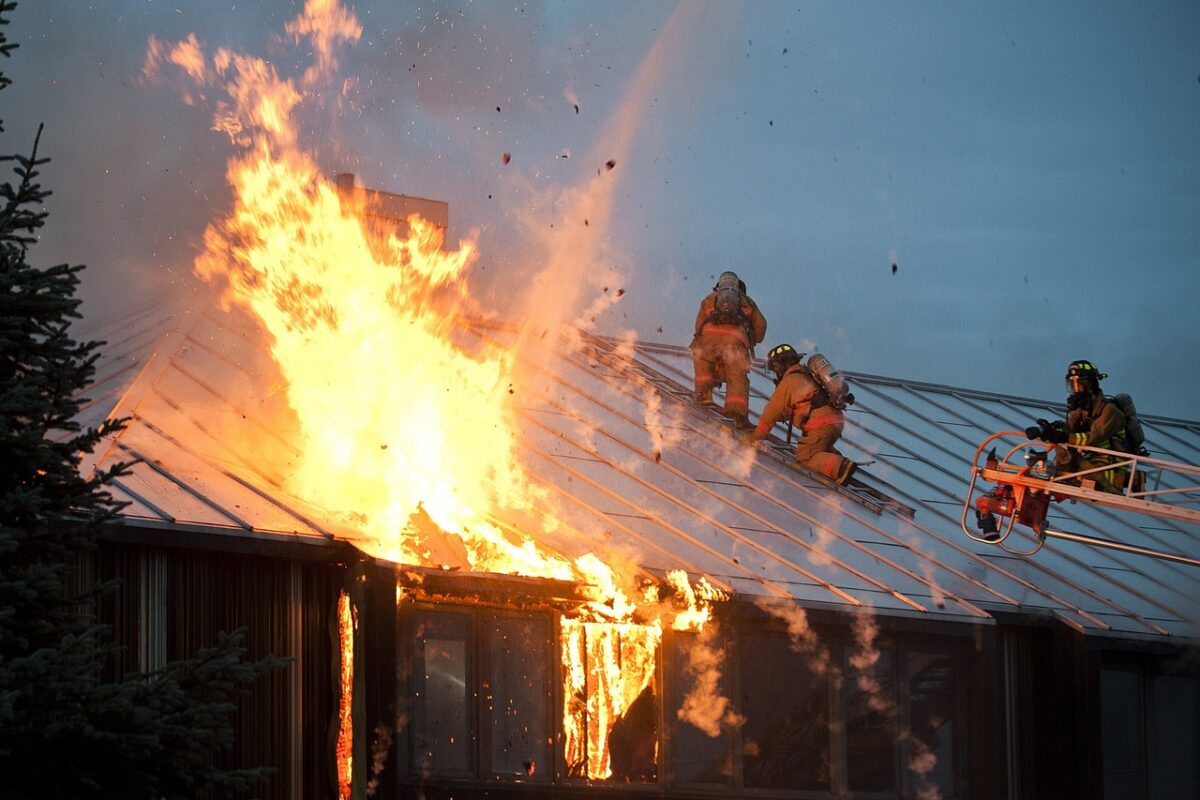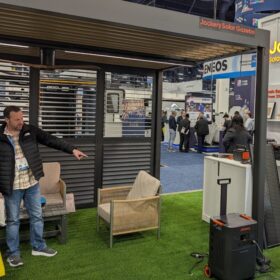The U.S. International Trade Commission (USITC) has voted unanimously that there has been significant injury in Suniva/SolarWorld’s Section 201 trade petition, moving the case on to the new phase when the USITC will recommend what sanctions it believes should be imposed.
The 4-0 decision allows the imposition of tariffs or other trade remedies on cell and module imports on a global basis, however separate determinations were made for countries with specific trade agreements. USITC found injury from imports from Mexico and Korea, but not Canada or Singapore, meaning that it will not recommend trade remedies against cells or modules from Canada or Singapore.
Additionally the agency found no significant injury caused by imports from Australia, Colombia, Jordan, Panama, Peru and Central American nations, and these are likely to be exempt from proposed trade remedies; however none of these nations possess significant cell or module manufacturing capacities.
Suniva hailed the decision as a victory for the cell and module manufacturing segment of the industry.
“Suniva is gratified that the USITC has found that a surge of imports into the U.S. has decimated the American CSPV cell and module manufacturing industry,” the company said in a written statement. “We brought this action because the U.S. solar manufacturing industry finds itself at the precipice of extinction at the hands of foreign market overcapacity.”
“The USITC has agreed, and now it will be in President Trump’s hands to decide whether America will continue to have the capability to manufacture this energy source,” the company said. “President Trump can remedy this injury with relief that ensures U.S. energy dominance that includes a healthy U.S. solar ecosystem and prevents China and its proxies from owning the sun.”
Installers, along with the Solar Energy Industries Association (SEIA), expressed disappointment in the outcome.
“The ITC’s decision is disappointing for nearly 9,000 U.S. solar companies and the 260,000 Americans they employ,” said Abigail Ross Hopper, president and CEO of SEIA. “Foreign-owned companies that brought business failures on themselves are attempting to exploit American trade laws to gain a bailout for their bad investments.”
“Analysts say Suniva’s remedy proposal will double the price of solar installations, destroy two-thirds of demand, erode billions of dollars in investment and unnecessarily force 88,000 Americans to lose their jobs in 2018,” Hopper said.
“Anyone closely involved with watching how this trade petition wended its way through the U.S. International Trade Commission process always had a sneaking suspicion the final decision would end up with President Donald J. Trump,” said Tony Clifford, chief development officer for Maryland-based installer Standard Solar.
“The ITC did its due diligence and, after much deliberation, decided these two foreign-owned module makers were indeed harmed by module imports from other countries—but fortunately, today’s decision is only the beginning, not the ending, of the story.”
Remedies
Now the case moves into the remedies phase, when the USITC will determine what remedies should be imposed on internationally manufactured solar cells and modules. The co-petitioners are asking a minimum import price starting at $0.78 per watt for modules and $0.40 for cells.
“As the remedy phase moves forward, I am determined to reach a conclusion that will protect the solar industry, our workers and the American public from what amounts to a shakedown by these two companies,” Hopper said. “An improper remedy will devastate the burgeoning American solar economy and ultimately harm America’s manufacturers and 36,000 people currently engaged in solar manufacturing that don’t make cells and panels.”
“Now the ITC begins its deliberations about what remedies should be imposed on imports, and this will be where the real effects on the industry will be determined,” Clifford said. “I hope the ITC will conclude only minimal or no tariff increases are necessary. Otherwise, the U.S. solar industry could lose 88,000 or more jobs.”
“I’d also remind President Trump that two-thirds of the solar jobs in America do not require any college education. Losing 88,000 jobs, most of which are blue collar, is a lot for the American economy—and President Trump’s base in particular—to absorb.”
Update: This article was updated at 3:30 PM EST on September 22 to provide more information on the nations subject to and exempt from injury findings under today’s ruling.
This content is protected by copyright and may not be reused. If you want to cooperate with us and would like to reuse some of our content, please contact: editors@pv-magazine.com.








While the short-term effects are severe, I think there’s a certain `wolf cry` effect going on here. The long term benefits of solar PV to residential and commercial clients remain, and these are resistant to support from local governments and other vagaries of the marketplace. With decreasing costs of panels, parity with whatever situation results will just take a couple of years to reestablish. Moreover, already, most of the cost of an installation is in labor and margins, paperwork, and being sure a roof can support an installation.
I think even penalties imposed by some utilities on solar PV connected to grid are inconsequential in the long run, except for visions of a solar-supported future grid. What they do do, in my opinion, is incentivize grid defection, and support business models for technologists who will offer owners well-endowed with solar PV to operate connected to the grid as little as possible if at all.
In fact, the whole ITC thing is a big splash in the public’s media mind more than it is substantial. For example, no one who cares about how their panels are made and the environmental impacts of making them buys them from a manufacturer who has plants in China.
In the end, Suniva and company will be supported by an anti-capitalist and anti-market decision, and suffer the business consequences of having that support: They won’t be lean, and will fall over as soon as some other market wind blows over them, such as a fundamental change in panels technology.
Any major tariffs will mean rise of thin film to replace silicon. first solar model six will sell at
.40 cents a watt. New plants will be built asap. First Solar now has 1 gigawatt annual capacity.that will triple or,more asap.Japanese thin film makers will build us plants.
There is no denying that if solar module prices drop 30% in 3 months (like they did last Fall), somebody is buying market share.
Bottom line here is the mega watt market is going to be hurt in the US. Residential and small commercial will survive.
Funny how REC (manufacturing in Singapore) is excluded from ITC 201 and just happens to be a Norwegian company. Maybe Trump is favoring the Norwegians…